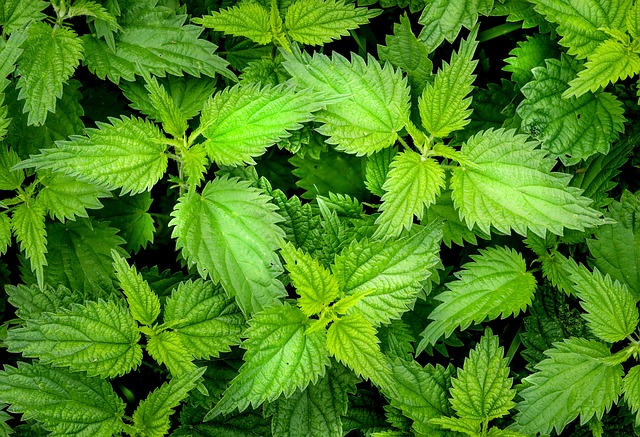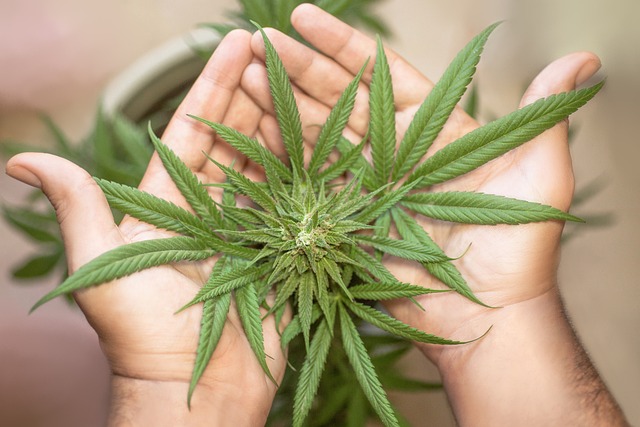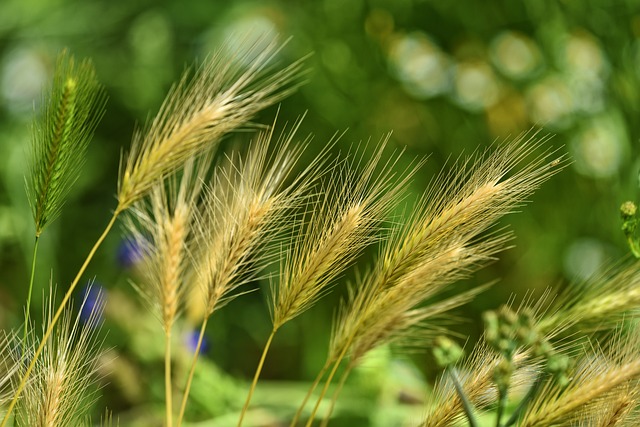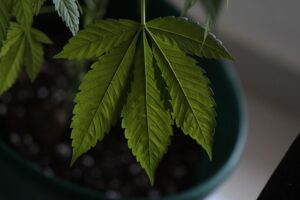
THCA flower, a non-psychoactive cannabinoid found in raw cannabis plants, is garnering attention for its potential therapeutic benefits such as anti-inflammatory, neuroprotective, and analgesic effects. Unlike its decarboxylated form THC, THCA does not cause intoxication but can be used for wellness purposes. When incorporating THCA flower into a health regimen, it's crucial to adhere to specific dosage guidelines to ensure safety and efficacy. A typical starting dose ranges from 1-5 mg per day, adjusted according to individual factors like body weight, tolerance, and personal health objectives. Beginners should begin with small doses and monitor their reactions carefully. Consulting a healthcare professional is recommended to tailor the dosage to individual needs and avoid potential negative effects or interactions with other treatments. The method of consumption—vaporization, smoking, or ingesting edibles—can influence the intensity and duration of THCA's effects, thus it's important to understand how these methods affect personal experiences. Following THCA flower dosage guidelines is key to using this cannabinoid responsibly as part of a wellness routine.
Exploring the intricacies of THCA flower, an emerging figure in the cannabinoid landscape, this article sheds light on its unique potential effects and the pivotal role it plays within the cannabis plant. Distinguishing itself from its psychoactive counterpart THC, THCA possesses a distinct chemical structure that offers a range of therapeutic benefits. While the medicinal properties of THCA are gaining recognition, understanding its side effects and safe dosage guidelines is paramount for responsible use. This piece delves into the nuances of THCA flower consumption, providing valuable insights into optimal dosing, individual body chemistry variations, and the importance of monitoring effects to ensure safety and efficacy. Additionally, it addresses legal considerations and storage protocols to navigate this evolving field responsibly. Join us as we dissect the science behind THCA flower and its implications for health and well-being.
Understanding THCA Flower and Its Potential Effects

THCA, or Tetrahydrocannabinolic Acid, is a natural cannabinoid found in the un-decarboxylated form within the cannabis plant. Unlike its more famous counterpart THC (Tetrahydrocannabinol), THCA is non-psychoactive, offering potential therapeutic benefits without the intoxicating effects associated with THC. As research evolves, individuals are increasingly exploring THCA flower for its potential wellness applications, including anti-inflammatory, neuroprotective, and analgesic properties.
When considering the use of THCA flower, it is crucial to adhere to dosage guidelines to optimize safety and efficacy. Dosage can vary based on individual factors such as body weight, tolerance, and desired effects. Typically, users may start with a low dose to gauge their sensitivity and gradually increase as needed, while always being mindful of personal response. It’s important to note that the optimal dosage can be subjective, and users should consult with a healthcare professional or follow reputable sources for guidance. Additionally, THCA flower consumption methods—such as vaporization, smoking, or ingesting edibles—can influence the onset and duration of effects, further emphasizing the importance of understanding proper dosing to avoid adverse reactions. Always prioritize informed usage and consult with experts when integrating THCA flower into one’s wellness routine.

THCA, or Tetrahydrocannabinolic Acid, is a non-psychoactive cannabinoid found in the raw cannabis flower that undergoes decarboxylation to become THC, the primary psychoactive component of cannabis. While THCA itself does not induce intoxication, it holds promise for various therapeutic applications. When considering THCA flower as a part of one’s wellness regimen, it is imperative to adhere to dosage guidelines to ensure safety and efficacy. The recommended starting dosage typically ranges from 1-5 mg of THCA per day, depending on individual body chemistry and the specific health concerns being addressed. As with any supplement or medication, it is advisable to begin with a lower dose and gradually increase as needed, while closely monitoring effects. It’s also crucial to note that THCA dosage guidelines can vary based on the product form and the specific conditions being treated. Consulting with a healthcare professional before starting any new supplement, including THCA flower, is always recommended to tailor dosage to individual needs and to avoid potential side effects or adverse interactions with other medications. With careful consideration of dosage, THCA flower can be a valuable addition to one’s health and wellness routine.
In reviewing the existing research on THCA flower, it is clear that while this compound may offer potential therapeutic benefits, careful consideration of appropriate dosages is paramount. Users should adhere strictly to THCA flower dosage guidelines as outlined by experts to minimize side effects and ensure safe usage. The variability in individual responses underscores the importance of personalized approaches when integrating THCA flower into health regimens. As such, it is essential for consumers to consult with healthcare professionals before incorporating THCA flower into their wellness practices, particularly given the need for more comprehensive studies to fully understand its effects and optimal usage parameters. With prudent use and further scientific exploration, THCA flower holds promise as a beneficial addition to health and well-being routines.







